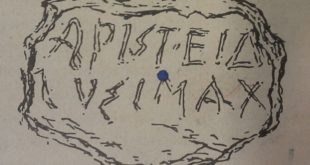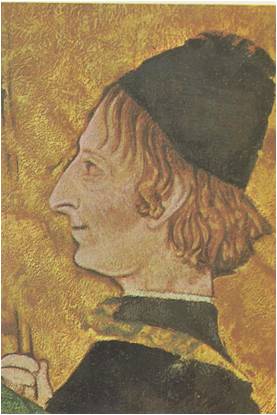The heroism of Harmodius and Aristogeiton was a myth, but Athenian democracy was not. In the two great wars of the fifth century — the Persian and the Peloponnesian — the Athenians clearly felt they had what would now be called a “way of life” which was worth fighting for. Cleisthenes, although he was of nobler blood than Solon, gave more power to the poor than Solon had done. Nearly all Athenian citizens now had a vote in the Assembly, a body which approved laws discussed in the Council of Five Hundred. The Five Hundred were elected by the citizens …
Read More »Tag Archives: Greeks
Rivalries in the Middle East 1856 – 1912
THE MIDDLE EAST where Europe, Asia and Africa meet had long been known as one of the great crossroads of the world. Most of its people were Moslems, but among them were many Christians and Jews. They spoke languages as different as Arabic and Latin, Slavic and Turkish. They had little in common except that they were all subjects of the Ottoman sultan in Constantinople. The Ottoman Empire — so called after its early founder, Othman — was the last of several empires to rule over a large part of Islam. Unlike the earlier empires, it was dominated not by …
Read More »Gentlemen, Scholars and Princes 1400 – 1507
One day in the fifteenth century, the Turkish potentate of Babylonia decided to send gifts to the greatest ruler in Italy. He consulted his counselors and men who had traveled widely in Europe, asking them who best deserved this honour. They agreed that one Italian court outshone the rest and that his court must surely be the home of Italy’s mightiest sovereign. They did not name Milan, the home of the proud Sforza, nor Florence, the city of the clever Medici. The most magnificent court in Italy, they said, was at Ferrara, the capital of the dukes whose family name …
Read More »The Sound of Bells and Trumpets in Europe 1300 – 1600
Bells and trumpets sounded across Europe in the time that men would call the Middle Ages. Knights in glistening armour rode forth to serve God and their kings; life was like a stately procession winding through a landscape marked by castles and cathedrals. Each man knew his place. He was a prince, a knight, a squire, a priest, a craftsman, or a serf. He wore the clothes that belonged to his rank — the armour and family emblems of a nobleman, the robes of a churchman, or the rough wool jerkin of a serf. He lived according to an age-old …
Read More »The First Palm Sunday A.D. 29
IT WAS the Sunday before Passover. The soft greens of spring and patches of wild flowers brightened the hills above Jerusalem. The holy days of the Passover, celebrating the escape of the Jews from slavery in Egypt, would not begin until the following Friday at sundown. But people were already busy preparing for it. The roads leading into the Holy City were crowded with Jews coming to attend the rites in the Temple. On the roads were also herds of cattle, flocks of sheep and carts loaded with cages of turtledoves. These were being brought to the Temple to be …
Read More »The City of Aeneas 1000 B. C. – 500 B. C.
The minstrels who wandered from country to country in the ancient world told a legend of Aeneas, a Trojan prince. According to the story, Aeneas escaped the Greeks who broke through the walls of Troy and fled to his ships with a little band of warriors. Rowing out onto the Hellespont, they watched while a great fire destroyed their city and they knew that they could never return to Troy. Then, the storytellers said, the gods spoke to Aeneas, telling him to turn his ships west. They commanded him to sail away from the Hellespont and the Aegean Sea, past …
Read More »The Greek Way of Life 700 B. C. – 343 B. C.
In the first years of Spartan peace, Greece was filled with wandering soldiers. Their little cities needed them no more. The new governments, which Spartans appointed, looked on them as men who might make trouble and were quick to get rid of them. Homeless and with no way to earn a living, the old campaigners roamed from place to place. They became soldiers of fortune, men who fought for any general or city that offered pay and three meals a day. In 401 B. C., ten thousand of them hired themselves out to Cyrus, a prince of Persia, who hoped …
Read More »Gods and Heroes 800 B.C. – 550 B.C.
From island to island and town to town, across the wide new world of the Greeks, the minstrel wandered, with a harp slung across his back and a batch of stories in his hand. When he knocked at the gate of a palace or great house and offered to sing for his supper, he was never refused. There were no shows to see and no books to read. The people relied on the minstrels to entertain them and to tell their stories of the past, which otherwise might be forgotten. The minstrel’s stock of stories was a mixture of tall …
Read More »The Power of Minos 2200 B.C. to 1400 B.C.
Far to the south of the Greek Peninsula lay the large island of Crete. It was the home of a nation of sea-warriors – cruel, dark, handsome men, who claimed the eastern Mediterranean and all the Aegean Sea as their own. For eight hundred years — from 2200 to 1400 B. C. — they made good on their claim. The Cretan seamen strutted about the decks in loincloths and high bools. They wore clanking jewelry of finely worked gold, curled their long hair and rubbed their bodies with perfumed oil so that they glistened in the sunlight. They were fighters …
Read More »A New People, a New Faith 650 B. C. – 330 B. C
BABYLON, the final capital of Mesopotamia civilization, had fallen to warrior tribesmen from the east, the Medes and Persians. The Medes and Persians were descended from the Aryan peoples who for centuries had been moving out of the grasslands of central Asia with their horses and herds. Some of the Aryans settled in the valleys and slopes of the mountains surrounding the great arid plateau between the Persian Gulf and the Caspian Sea. From them the region took its name, Iran, or Land of the Aryans. The Aryans who lived in the mountains northeast of Mesopotamia were the Medes, familiar …
Read More »








